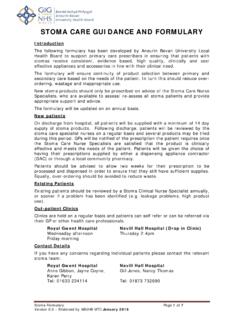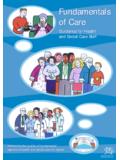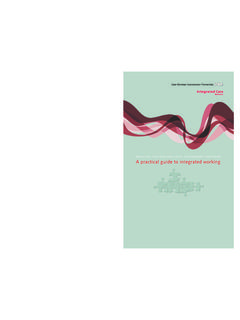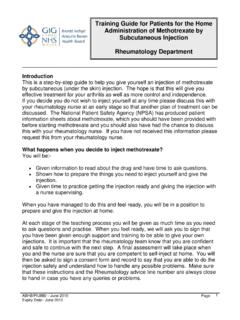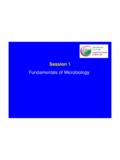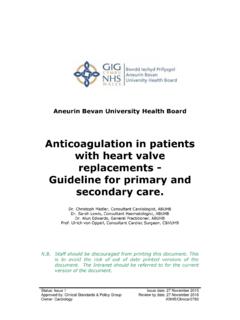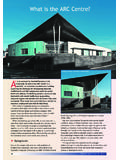Transcription of Responding to Adverse Childhood Experiences
1 An evidence review of interventions to prevent and address adversity across the life courseLisa Di Lemma, Alisha R. Davies, Kat Ford, Karen Hughes, Lucia Homolova, Benjamin Grayand Gillian Richardson Responding to Adverse Childhood Experiences Authors and ContributionsLisa Di Lemma1, Alisha R. Davies1, Kat Ford2, Karen Hughes1,2, Lucia Homolova1, Benjamin Gray1 and Gillian Richardson1. 2 | Responding to Adverse Childhood experiences1 Public Health Wales NHS TrustCapital Quarter , Tyndall StreetCardiffCF10 4 BZTel: +44 (0)2920 227744 2 Public Health Collaborating UnitBangor Institute for Health and Medical ResearchSchool of Health SciencesBangor UniversityWrexham Technology Park WrexhamLL13 7 YPTel: +44 (0)1248 383519 AcknowledgmentsFirst, we give a special thanks to Dr Barbara Paterson (Public Health England), Professional Officer Helen McKenzie (Safeguarding Board for Northern Ireland) and Professor Mark Bellis (Public Health Wales) for providing expert peer review.
2 Secondly, we would like to thank colleagues at Public Health Wales including Alyson Francis, Amy Hookway, Kate Heneghan, Teri Knight and Ruth Harris for their support and helpful feedback in the development of the report, and Claudine Anderson, Vicky Smith and Dr Charlotte Grey for their support with report production. Suggested citationDi Lemma , Davies , Ford K., Hughes K., Homolova L., Gray B and Richardson G. (2019). Responding to Adverse Childhood Experiences : An evidence review of interventions to prevent and address adversity across the life course. Public Health Wales, Cardiff and Bangor University, Wrexham, ISBN 978-1-78986-035-1 2019 Public Health Wales NHS Trust. Material contained in this document may be reproduced under the terms of the Open Government Licence (OGL) provided it is done so accurately and is not used in a misleading context.
3 2019 Bangor University. Material contained in this document may be reproduced provided it is done so accurately and is not used in a misleading to Public Health Wales NHS Trust, Bangor University to be stated. Copyright in the typographical arrangement, design and layout belongs to Public Health Wales NHS Trust, Bangor 41 Introduction 5 About this report 5 Why now? 6 Overview of ACEs 72 Methodology 103 Evidence-based interventions and approaches 11 Supporting parenting 12 Building relationships and resilience 15 Early identification of adversity 19 Responding to trauma and specific ACEs 214 Cross-cutting themes 255 What next?
4 28 References 30 Appendices 38 Appendix 1. Detailed methodology 38 Appendix 2. List of interventions identified in the review 40 Appendix 3. Supporting evidence 42 ContentsResponding to Adverse Childhood Experiences | 34 | Responding to Adverse Childhood experiencesACEsAUDITBBBSCPPCTCEIFFCUFAST GBGIPPIYIPVMIMSTMTFCNBPNFP (or FNP)NICEPATHSPTSDPLHPSQROISEEKTRMUKUSAWH OWSIPPA bbreviations used in the report Adverse Childhood experiencesAlcohol Use Disorders Identification TestBig Brothers Big Sisters programmeChild-Parent Psychotherapy Communities That CareEarly Intervention FoundationThe Family Check-Up Families and Schools Together Good Behaviour GameInfant-Parent Psychotherapy The Incredible YearsIntimate partner violence Motivational Interviewing Multisystemic TherapyMultidimensional Treatment Foster CareNew Beginnings ProgramNurse-Family Partnership (or Family Nurse Partnership)
5 National Institute for Health and Care ExcellencePromoting Alternative Thinking Strategies Post-traumatic stress disorder Parenting for Lifelong HealthParent Screening QuestionnaireReturn on Investment Safe Environment for Every KidTrauma Recovery ModelUnited KingdomUnited States of AmericaWorld Health OrganizationWashington State Institute for Public Policy Responding to Adverse Childhood Experiences | About this report Adverse Childhood Experiences (ACEs) are stressful events during Childhood that can have a profound impact on an individual s present and future health (Section ). Growing up in the face of such adversities is recognised as an important public health concern in Wales and internationally (Welsh Government, 2017a; World Health Organization [WHO], 2014).
6 Actions to prevent and mitigate ACEs and their associated harms are essential to improve population health for present and future generations (Bethell et al., 2017; Pachter et al., 2017).In Wales, many sectors are working to identify and respond to adversity in order to improve outcomes for those who have experienced ACEs. Whilst a number of evidence-based interventions target specific types of adversity ( domestic violence), we know that ACEs are strongly correlated ( individuals exposed to adversity are often exposed to more than one type; Hughes et al., 2017). Thus, complex adversity requires a response which extends across sectors including health, social care, policing, education, community and others, and across the life course from early Childhood through to support innovation in addressing ACEs we have undertaken a review of evidence on common approaches to prevent ACEs and/or mitigate their negative impacts.
7 Over 100 interventions were identified and collated across four common approaches: supporting parenting; building relationships and resilience; early identification of adversity; and, Responding to trauma and specific ACEs (Chapter 3). Whilst the interventions vary in type, the review identified cross-cutting themes, which could be used to inform a whole system approach (spanning individual, family and community levels) to tackle ACEs across the life course, supporting the development of an ACE-informed approach (Chapter 4). The report concludes by highlighting current gaps in the evidence and suggests key areas for further work to tackle ACEs for our future generations (Chapter 5).The report is not an exhaustive systematic evidence review of the interventions for specific ACE types, nor does it advocate any specific intervention, rather it seeks to present a summary of the research evidence and information on common approaches across the prevention of ACEs and mitigation of their impact.
8 We hope the report will be a useful resource for service planners, practitioners and commissioners to support innovation and development towards an ACE-free Why now?In Wales, current policy context and legislation is supportive of addressing ACEs. The ground-breaking Wellbeing of Future Generations (Wales) Act (2015), provides the foundation for all public services to work collaboratively towards an integrated life course approach to wellbeing. Additionally, Prosperity for All: the national strategy (Welsh Government, 2017a) sets out national commitments for the establishment of foundations for lifelong wellbeing ( investing in early years) and the prevention of ACEs through the creation of ACE-aware public services1.
9 A Healthier Wales: our Plan for Health and Social Care recognises the lifelong importance of addressing adversity experienced in Childhood (Welsh Government, 2018). This context enables (and is in line with) Public Health Wales priorities of building resilience across the life course and of addressing harmful behaviours and protecting health (Public Health Wales, 2018). Action to prevent and mitigate the consequences of ACEs is essential to improve population health. This report aims to support such work by summarising existing international evidence of common approaches used in interventions which seek to prevent ACEs and mitigate their public service ( schools, housing, policing and health) adopting a trauma -informed approach.
10 6 | Responding to Adverse Childhood experiencesResponding to Adverse Childhood Experiences | Overview of ACEsACEs are stressful events occurring in Childhood , such as being a victim of abuse, neglect, or growing up in a household in which alcohol or substance misuse, mental ill health, domestic violence or criminal behaviour resulting in incarceration are present (Felitti et al., 1998). ACEs are common, with approximately 50% of the adult population (aged 18-69 years) in Wales reporting having experienced at least one ACE, and reporting four or more (Hughes et al., 2018). These prevalence estimates are comparable to other studies conducted in Wales (Bellis et al., 2015a), the UK (Ford et al.)
